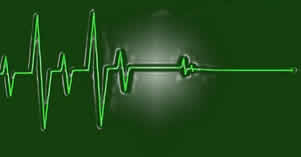
How we deal with the end of life is a controversial and incredibly expensive part of our public health care system.
I have been reading the news from India and talking to Geoff who co-authored the book Health Cheque with me a couple of years ago. One thing we discussed in the book was issues around end of life care. To me it seems we’re forever rationing our health resources, denying some patients more care because we have to allocate a fixed amount of resource across the patient base. As a result no doubt some patients die when they could have lived if we’d allocated more resource. To me that’s euthanasia when in full knowledge the medical professionals have no other choice but not to make available resources that could save the person’s life. The facts of life are that the NZ health system does not have the ultimate in health care available for every disease, we have to prioritise so for some patients they will be denied and die. That can be argued to be one form of euthanasia.
Here is a guest post from Geoff about our thoughts on the PM’s recent comments….
The Prime Minister’s comments about euthanasia happening in our hospitals have sparked some controversy amongst our medical profession. The docs are concerned that the public might get the impression that they wander around hospital corridors, mercilessly flicking life support switches off. What the PM talked about may not fit the narrow medical definition of euthanasia, but regardless he has rightly pointed the public debate toward a much bigger, and more important issue: how we deal with death given limited healthcare resources.
The narrow medical definition of euthanasia is the practice of intentionally ending a life in order to end pain and suffering. This does not happen in New Zealand, hence the call for a law change. But actually the sort of circumstances where this narrow kind of euthanasia comes into play are extremely rare. As such, the proposed Maryan Street bill will really make no difference to how most Kiwis die. The real issue is that we only have limited resources – docs, nurses, hospital beds and money – to treat people. People always want more healthcare than we can deliver (particularly when its free!), so rationing occurs. We like to think we have a health system that can treat everyone all the time but this is an illusion. Treatments are rationed, and people die as a result. This is only a small step from euthanasia.
In Health Cheque, we found that New Zealand wastes too much of our resources throwing the most expensive treatments at those already on death’s door. It is easy to see why, we naturally want to rescue those that are closest to death, but we shouldn’t kid ourselves that this spending actually makes us live longer. It just makes us feel better that we tried everything. But cleansing our conscience comes at a cost – as a country we can’t afford to prevent many of the diseases that eventually cause death. This one reason why poor people, particularly Maori and Pacific Islanders die earlier than the rest of us. As the PM has signalled, it is time for a more open, mature conversation about how health spending is rationed.
How we deal with the end of life is a controversial and incredibly expensive part of our public health care system. The latest estimate is that each person costs the health system more than $20,000 in their last year of life. That is an average figure, for some the cost runs in the hundreds of thousands of dollars. If we are really interested in living longer, we would spend more of this precious resource on prevention rather than heroically trying to keep people alive for a few more weeks or months. The Government could lead by example by ensuring that health spending goes to where it will have the greatest health benefit, rather than the current obsession with keeping health off the front pages of the papers.
We can all take action as individuals too. The truth is that all medical treatment has a downside, and often this sort of treatment simply prolongs the patients agony, or worse the treatment ends up being more damaging than the condition itself. In some cases, brave doctors, nurses, patients and families have an honest conversation about things, and decide that while treatment may be keeping the patient alive longer, but is causing un-necessary pain and is unlikely to restore a quality life. So treatment is ceased and the patient dies. This common sense way of dealing with death is better for all involved, and saves taxpayer money too. My own grandfather bravely made this choice recently when, in hospital with a brain tumour, chose to stop taking food and water. Unfortunately these conversations are difficult to have, so they tend to be avoided and the madness continues.
The PM is right to open this debate up from a narrow medical definition of euthanasia. It is time to grow up, realise we aren’t immortal and start talking about a graceful death. The Government needs to own up to the fact that rationing already occurs, and we can do it better. As individuals we need to start talking openly about the downsides of treatment, and at what point we don’t wish to receive more treatment to keep us alive.

